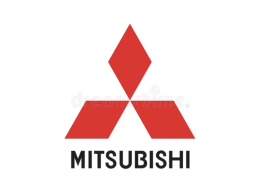It is in this context that we have urged policy makers to be humble. That is, to allow the excesses of the bubble to be corrected, which will in turn allow for a sustainable recovery. Rather than throwing trillions at an economy in a scatter gun approach, simply hoping that things work out as planned, policy makers could let free market forces do their work. The current environment might be painful, as inflationary pressures have crept up, although they have mostly been limited to items the Fed seems to consider “transitory”. Oddly, countries that have a challenging time recovering from the financial crisis justify low interest rates by calling inflationary pressures transitory; in contrast, Singapore recently tightened monetary policy – in our assessment because they are in a strong enough position to be able to take measures against rising inflationary pressures. Humble monetary policy, in our assessment, means not walking on a cliff’s edge, but to pursue sound monetary policy.
Not Bernanke. His view of being humble is rather different. In his press conference discussing the latest Federal Open Market Committee (FOMC) statement, he was asked to contrast the US and Japanese experiences. Bernanke argued that the US avoided the Japanese experience because,
- “We acted aggressively and preemptively to avoid deflation”
He also listed the fairly quick move to recapitalize banks. He suggests,
- “… that we will avoid some of the problems that Japan has faced. That being said, I think, it’s always better to be humble and just to avoid being too confident, and we need to continue to maintain strong monetary policy support to make sure that the economy continues on a recovery path and returns to a more normal situation.”
That is, Bernanke’s view of being humble means not to assume that deflation has been beaten, but to continue to ‘maintain strong monetary policy support.’ It is very consistent with what Bernanke has argued in the past: that one of the biggest mistakes during the Great Depression was to tighten monetary policy too early. The reason is the same: take the foot off the gas pedal too early and the economy might fall right back down.
What about the fact that an increasing number of FOMC members now believe that interest rates will be raised earlier than the end of 2014? According to Bernanke, these personal forecasts of individual FOMC members are merely inputs to the committee’s process. The result is that the Fed is committed to keeping rates exceptionally low until at least the end of 2014. When quizzed on whether 1% would still be considered exceptionally low, Bernanke said that different FOMC members have different definitions of the term, but his personal view is that exceptionally low refers to the current target range of between 0% and 0.25%.
To summarize, in our opinion, being humble means to have great respect for unintended consequences and rather err on the side of allowing market forces to play their course.
To Bernanke, being humble means to keep strong monetary policy support to avoid deflation.
This humbleness creates a lot of debt – whether that be out of thin air on the Fed’s balance sheet, or potentially across the economy as consumers, businesses and the government alike are enticed to borrow evermore money. So far, businesses are not taking the bait. But the government and some consumers are. What we consider monetary largess, as well as fiscal unsustainability, may ultimately lead to deterioration of the purchasing power of the U.S. dollar. It’s in this context that we have encouraged investors to take a diversified approach to something as mundane as cash. A basket of hard currencies or gold might serve to mitigate the risks of a declining dollar.
Please register for our upcoming Webinar on May 22, or sign up to our newsletter by clicking here to be informed as we analyze the global dynamics playing out. We manage the Merk Funds, including the Merk Hard Currency Fund. To learn more about the Funds, please visit www.merkfunds.com.
Manager of the Merk Hard Currency Fund, Asian Currency Fund, Absolute Return Currency Fund, and Currency Enhanced U.S. Equity Fund, www.merkfunds.com
Axel Merk, President & CIO of Merk Investments, LLC, is an expert on hard money, macro trends and international investing. He is considered an authority on currencies.
The Merk Hard Currency Fund (MERKX) seeks to profit from a rise in hard currencies versus the U.S. dollar. Hard currencies are currencies backed by sound monetary policy; sound monetary policy focuses on price stability.
The Merk Asian Currency Fund (MEAFX) seeks to profit from a rise in Asian currencies versus the U.S. dollar. The Fund typically invests in a basket of Asian currencies that may include, but are not limited to, the currencies of China, Hong Kong, Japan, India, Indonesia, Malaysia, the Philippines, Singapore, South Korea, Taiwan and Thailand.
The Merk Absolute Return Currency Fund (MABFX) seeks to generate positive absolute returns by investing in currencies. The Fund is a pure-play on currencies, aiming to profit regardless of the direction of the U.S. dollar or traditional asset classes.
The Merk Currency Enhanced U.S. Equity Fund (MUSFX) seeks to generate total returns that exceed that of the S&P 500 Index. By employing a currency overlay, the Merk Currency Enhanced U.S. Equity Fund actively manages U.S. dollar and other currency risk while concurrently providing investment exposure to the S&P 500.
The Funds may be appropriate for you if you are pursuing a long-term goal with a currency component to your portfolio; are willing to tolerate the risks associated with investments in foreign currencies; or are looking for a way to potentially mitigate downside risk in or profit from a secular bear market. For more information on the Funds and to download a prospectus, please visit www.merkfunds.com.
Investors should consider the investment objectives, risks and charges and expenses of the Merk Funds carefully before investing. This and other information is in the prospectus, a copy of which may be obtained by visiting the Funds' website at www.merkfunds.com or calling 866-MERK FUND. Please read the prospectus carefully before you invest.
Since the Funds primarily invest in foreign currencies, changes in currency exchange rates affect the value of what the Funds own and the price of the Funds' shares. Investing in foreign instruments bears a greater risk than investing in domestic instruments for reasons such as volatility of currency exchange rates and, in some cases, limited geographic focus, political and economic instability, emerging market risk, and relatively illiquid markets. The Funds are subject to interest rate risk, which is the risk that debt securities in the Funds' portfolio will decline in value because of increases in market interest rates. The Funds may also invest in derivative securities, such as for- ward contracts, which can be volatile and involve various types and degrees of risk. If the U.S. dollar fluctuates in value against currencies the Funds are exposed to, your investment may also fluctuate in value. The Merk Currency Enhanced U.S. Equity Fund may invest in exchange traded funds ("ETFs"). Like stocks, ETFs are subject to fluctuations in market value, may trade at prices above or below net asset value and are subject to direct, as well as indirect fees and expenses. As a non-diversified fund, the Merk Hard Currency Fund will be subject to more investment risk and potential for volatility than a diversified fund because its portfolio may, at times, focus on a limited number of issuers. For a more complete discussion of these and other Fund risks please refer to the Funds' prospectuses.
This report was prepared by Merk Investments LLC, and reflects the current opinion of the authors. It is based upon sources and data believed to be accurate and reliable. Opinions and forward-looking statements expressed are subject to change without notice. This information does not constitute investment advice. Foreside Fund Services, LLC, distributor.








